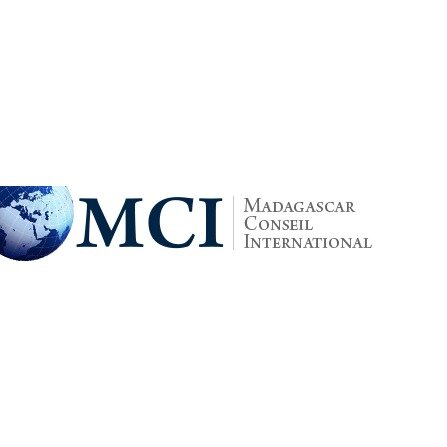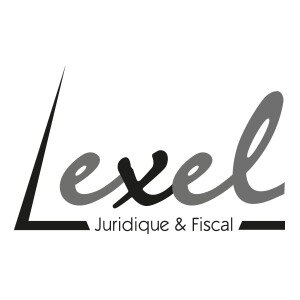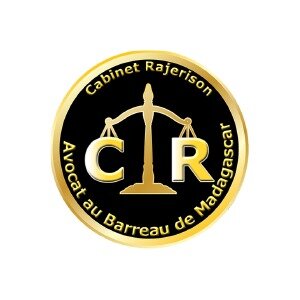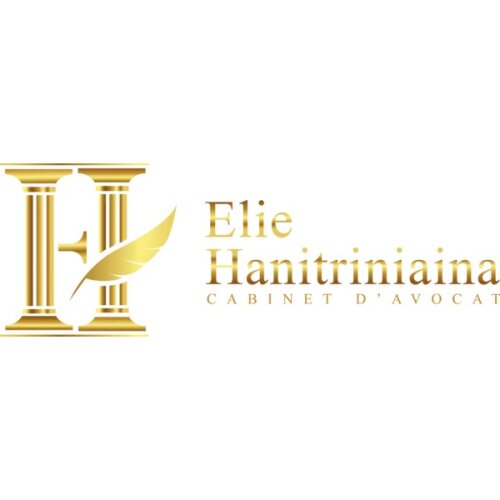Best Renewable & Alternative Energy Lawyers in Madagascar
Share your needs with us, get contacted by law firms.
Free. Takes 2 min.
Or refine your search by selecting a city:
List of the best lawyers in Madagascar
About Renewable & Alternative Energy Law in Madagascar
Madagascar is an island nation with enormous potential for renewable and alternative energy, including solar, wind, biomass, hydroelectric, and geothermal resources. The government recognizes renewable and alternative energy as key strategies for expanding electrification, reducing reliance on fossil fuels, and supporting sustainable economic growth. Renewable & Alternative Energy Law in Madagascar refers to the legal frameworks, incentives, regulations, and policies that govern the development, investment, licensing, and use of such energy sources within the country.
The legal landscape surrounding renewable energy in Madagascar is shaped by both national priorities and international commitments to reduce carbon emissions and promote sustainability. The goal is to encourage private investment and ensure that energy projects align with environmental and social standards.
Why You May Need a Lawyer
Individuals, companies, and organizations may require legal assistance relating to renewable and alternative energy in Madagascar for several reasons:
- Understanding complex regulatory requirements for developing or investing in renewable energy projects.
- Navigating licensing, permits, and environmental approvals with national or local authorities.
- Drafting and negotiating energy supply contracts and Power Purchase Agreements (PPAs).
- Ensuring compliance with land acquisition, zoning, and community engagement laws.
- Resolving disputes related to project development, land rights, or government approvals.
- Securing financing and understanding incentives, subsidies, or tax benefits for renewable projects.
- Protecting intellectual property arising from innovative renewable energy technologies.
- Addressing labor, safety, and environmental obligations tied to project construction and operation.
A specialized lawyer can guide you through each step, help you avoid costly mistakes, and represent your interests if conflicts or regulatory issues arise.
Local Laws Overview
Madagascar’s legal framework for renewable and alternative energy is evolving, with several key laws, regulations, and policies in place:
- Law No. 98-032: This law regulates the electricity sector in Madagascar and is the foundation for licensing and operation of energy projects, including provisions on tariffs, investments, and the rights of independent power producers.
- The Energy Code (Code de l’Energie): Establishes general principles for the energy sector, including the promotion of renewable energy development.
- Rural Electrification Agency (ADER): Oversees efforts to expand energy access in rural areas and supports private and community renewable projects.
- Environmental Permitting: Energy projects must undergo Environmental and Social Impact Assessments (ESIAs) as required by national environmental laws.
- Land Acquisition: Projects involving land use require compliance with land tenure laws and may need community consultations and agreements.
- Investment Codes and Fiscal Incentives: Certain laws provide tax incentives, customs exemptions, and benefits for renewable energy investments.
It is crucial to stay up to date, as laws and procedures can change frequently, and details can vary depending on the location and scale of your project.
Frequently Asked Questions
What types of renewable energy are most common in Madagascar?
Solar power, hydropower, wind energy, and biomass are the most common renewable energy sources in Madagascar, due to the country’s favorable geography and climate.
Do I need a permit to build a renewable energy project?
Yes, all renewable energy projects require various permits and approvals, including energy generation licenses and environmental permits. The specific requirements depend on the project’s size and location.
Can foreign companies invest in renewable energy in Madagascar?
Yes, foreign companies can invest, own, and operate renewable energy projects in Madagascar, subject to compliance with local laws, investment codes, and licensing procedures.
Are there any government incentives for renewable energy projects?
The government of Madagascar offers certain incentives, such as customs duty exemptions and tax benefits for approved renewable energy projects, especially those that promote rural development or align with national priorities.
What is a Power Purchase Agreement (PPA) and is it required?
A Power Purchase Agreement is a legal contract between an energy producer and a buyer (such as JIRAMA, the national electricity company). It is essential for independent power producers to secure a market for their electricity.
What environmental obligations apply to renewable energy projects?
Most projects must complete an Environmental and Social Impact Assessment and implement measures to mitigate negative environmental impacts, as required by Madagascan environmental laws.
Who regulates the energy sector in Madagascar?
The Ministry of Energy and Hydrocarbons sets policy, while the Office de Régulation de l’Electricité (ORE) acts as the energy regulatory authority. The Rural Electrification Agency (ADER) focuses on rural energy development.
What should I know about land use for energy projects?
Land acquisition or use often requires negotiations with local communities and strict compliance with Malagasy land tenure laws. Projects must respect property rights and community interests.
Can individuals or small companies produce renewable energy for their own use?
Yes, small-scale self-generation is allowed, though technical and safety standards must be met. Larger systems or grid connections may still require notification or certain permits.
What legal risks should I be aware of in this field?
Risks include regulatory changes, land disputes, environmental compliance issues, contract enforcement challenges, and potential conflicts with local communities or other stakeholders.
Additional Resources
If you are seeking more information or assistance, the following organizations and bodies in Madagascar can be helpful:
- Ministry of Energy and Hydrocarbons - Responsible for policy and oversight of the energy sector.
- Office de Régulation de l’Electricité (ORE) - The energy regulatory authority that issues licenses and enforces regulations.
- Agence de Développement de l’Electrification Rurale (ADER) - Focused on expanding rural electrification projects, including renewable energy.
- National Environment Office (ONE) - Handles environmental assessments and monitoring for energy projects.
- Chamber of Commerce and Industry - May provide investment support and networking for energy entrepreneurs.
- Bar Association of Madagascar - Can help you find qualified legal professionals specializing in energy law.
- Local and International NGOs - Many non-governmental organizations are involved in renewable energy advocacy and community engagement.
Next Steps
If you are considering a renewable or alternative energy project in Madagascar, or if you are facing legal questions in this field, you should:
- Assess the nature and scope of your project or issue, including specific energy sources and locations involved.
- Identify all potential regulatory, permitting, environmental, and contractual steps that will be necessary.
- Consult with a lawyer who has expertise in Madagascan renewable & alternative energy law to review your plans and ensure compliance from the start.
- Engage with relevant government agencies early in the process to clarify requirements and opportunities for incentives.
- Keep thorough documentation for all agreements, permits, contracts, and community engagements related to your project.
Legal assistance can help you navigate complex regulations, protect your investment, and achieve a successful, sustainable energy project in Madagascar.
Lawzana helps you find the best lawyers and law firms in Madagascar through a curated and pre-screened list of qualified legal professionals. Our platform offers rankings and detailed profiles of attorneys and law firms, allowing you to compare based on practice areas, including Renewable & Alternative Energy, experience, and client feedback.
Each profile includes a description of the firm's areas of practice, client reviews, team members and partners, year of establishment, spoken languages, office locations, contact information, social media presence, and any published articles or resources. Most firms on our platform speak English and are experienced in both local and international legal matters.
Get a quote from top-rated law firms in Madagascar — quickly, securely, and without unnecessary hassle.
Disclaimer:
The information provided on this page is for general informational purposes only and does not constitute legal advice. While we strive to ensure the accuracy and relevance of the content, legal information may change over time, and interpretations of the law can vary. You should always consult with a qualified legal professional for advice specific to your situation.
We disclaim all liability for actions taken or not taken based on the content of this page. If you believe any information is incorrect or outdated, please contact us, and we will review and update it where appropriate.
Browse renewable & alternative energy law firms by city in Madagascar
Refine your search by selecting a city.














